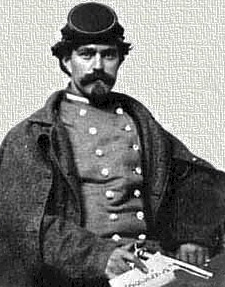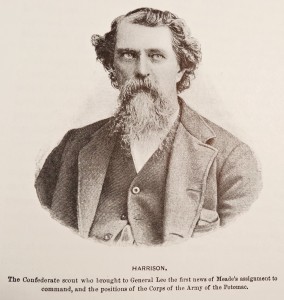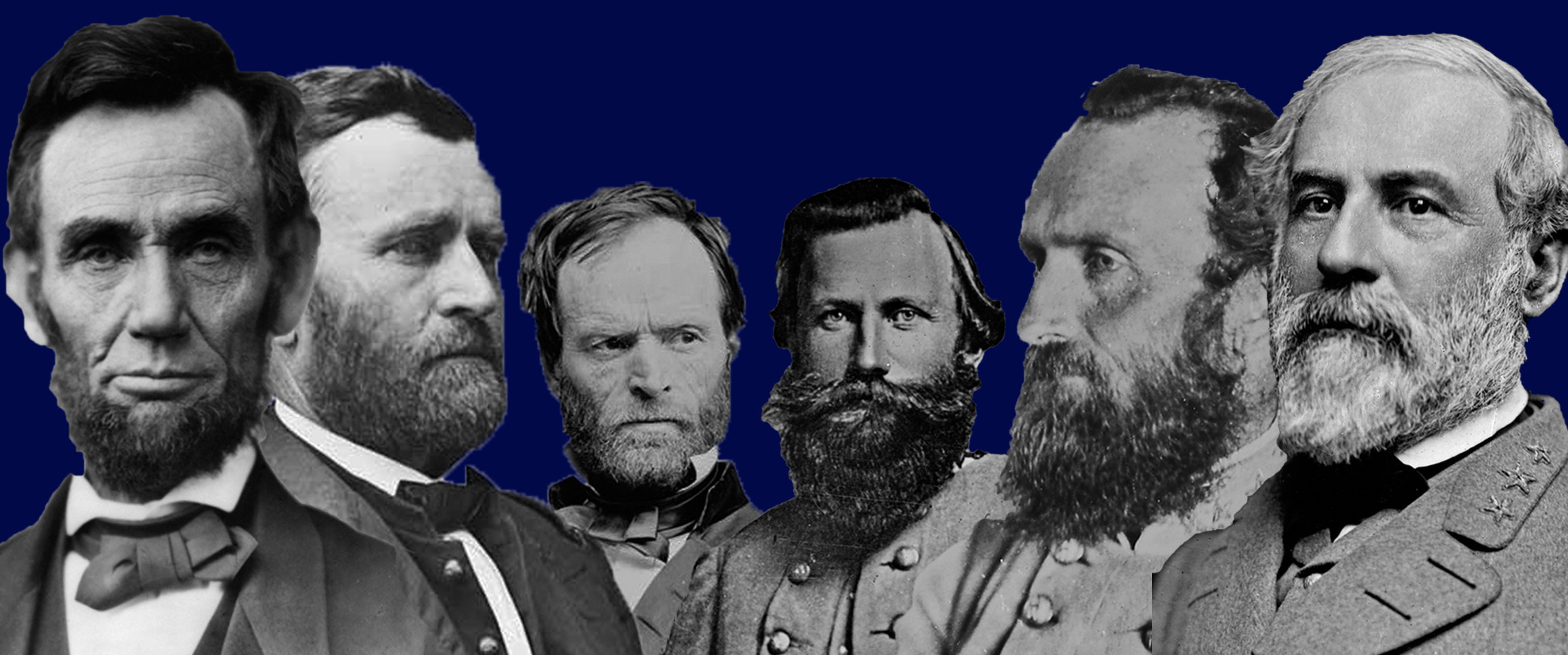
General James Longstreet and his chief of staff, Lt. Col. Moxley Sorrel, only referred to him as “Harrison.” Regarded by some as a “scout” and others a “spy,” the mysterious Henry Thomas Harrison would play a pivotal role in the days leading up to the clash at Gettysburg.
Born and raised near Nashville, Tennessee, Henry T. Harrison first enlisted into the Confederate service in Mississippi during April 1861 at the age of twenty-nine. His army scouting activities apparently began in September 1861 when he went on detached service from the 12th Mississippi Infantry. Later that November, Harrison was discharged from the army for unknown “medical reasons.”
Harrison’s name reappears in the records on January 6, 1863 when he sends a letter to “Maj. Gen. Loring or Genl. Com. at Grenada,” in which he details the movement of Gen. Ulysses S. Grant’s army through northern Mississippi, overtly signing the letter: “H.T. Harrison, Secret Agent, C.S.”
He later resurfaces in Goldsboro, North Carolina, in March 1863 while operating under Longstreet during his command of the Department of Virginia and North Carolina. In his book Recollections of a Confederate Staff Officer, Moxley Sorrel describes Harrison’s activity:
While Longstreet was holding this brief independent command, a scout, more properly a spy, was placed at his service by the War Department. He was a man of about thirty years, calling himself a Mississippian, and was altogether an extra-ordinary character. He was paid in United States greenbacks. I approved requisition on the quarter master every month for $150 for him. His time seemed to be passed about equally within our lines and the enemy’s. Harrison (such was his name) always brought us true information. There was invariable confirmation of his reports afterwards.
At some point, Harrison is arrested by Union soldiers near New Berne, NC after they discover him watching them from a distance. He is held prisoner by Federal authorities until mid-April 1863 when he is released due to a lack of evidence that he was actually working for the Confederate forces.
Returning to Virginia in May 1863, Harrison resumes his spying activities for Longstreet as described by the general in a February 1887 Century Magazine article:
Before we left Fredericksburg for the campaign into Maryland and Pennsylvania, I called up my scout Harrison, and giving him all the gold he thought he would need, told him to go to Washington City and remain there until he was in possession of information which he knew would be of value to us, and directed that he should make his way back to me and report.

Moxley Sorrel writes that Harrison straggled into the lines on the night of June 28, 1863 “filthy and ragged, showing some rough work and exposure.” Upon hearing Harrison’s report, Sorrel immediately takes him to Longstreet, who listens intently as the scout describes in great detail the location of the Union army around Frederick, Maryland. Harrison also informs Longstreet that Gen. George Meade is in command of the Army of the Potomac, having replaced Gen. Joe Hooker.
Considering the intelligence “more accurate than we could have expected if we were relying upon our cavalry,” Longstreet writes a note suggesting the army head east, and sends it along with Harrison and another staff officer to Gen. Robert E. Lee. Although initially skeptical of the information, Lee, having no report on the whereabouts of the Union army from Gen. Jeb Stuart, trusts Longstreet’s assessment and orders the Army of Northern Virginia to move toward Gettysburg, where the epic battle begins three days later.
Following the Confederate defeat in Pennsylvania, Harrison travels back to Virginia with the army, but had “no immediate duties assigned him” according to Sorrel, so “he trotted along from day to day, but he was sure of something to come, and it came. He asked permission to go to Richmond for a few days.”
A week later, Sorrel also happens to be in Richmond, where he goes to the theater and finds Harrison acting out a role on stage as part of a $50.00 bet. Sorrel thought Harrison was intoxicated on stage, and after making some inquiries around town, discovers the spy “was drinking and gambling.” Reporting the incident and information to Longstreet, the general decides to cease using Harrison’s services and the spy is “paid off.”
Following his dismissal from Longstreet’s service, Harrison eventually marries and has two children. After the war, the family emigrates to Mexico with other Confederates for a brief time before returning to the United States. Their marriage failing, Harrison leaves in 1866 to prospect for gold in Montana, never seeing his family again.
Eventually settling in Cincinnati, Ohio, Henry Harrison remarries in 1920 and moves across the river to Covington, Kentucky, where he dies on October 28, 1923 at the age of 91.

cool
Cool why
super cool
Why cool
cool
This was the most helpful article i could find while researching about spys from the civil war, thank you Matthew Lively.